The story of an American from Las Vegas, Nevada, USA, who came to Ukraine as a journalist at the outset of the full-scale invasion before joining the ranks of the country’s Defense Forces in 2022 as a combat medic, gained quite a lot of publicity on social media. During her service she switched from the frontlines to the infowar battlefield where she would brazenly call out Russian propagandists, using an exaggerated version of herself for this persona. Sarah sparked outrage in the Russian establishment by outrageously mocking the Kremlin. As it turns out, it was all part of a sophisticated special information operation that received high praise from strategic communications experts and Ukraine’s security forces.
In an interview with Ukrinform, Sarah spoke of what was going on behind the scenes of her daring and rather controversial project, and shared her thoughts on the best strategy for waging an information war against a highly-skilled adversary with an unlimited psyops budget.
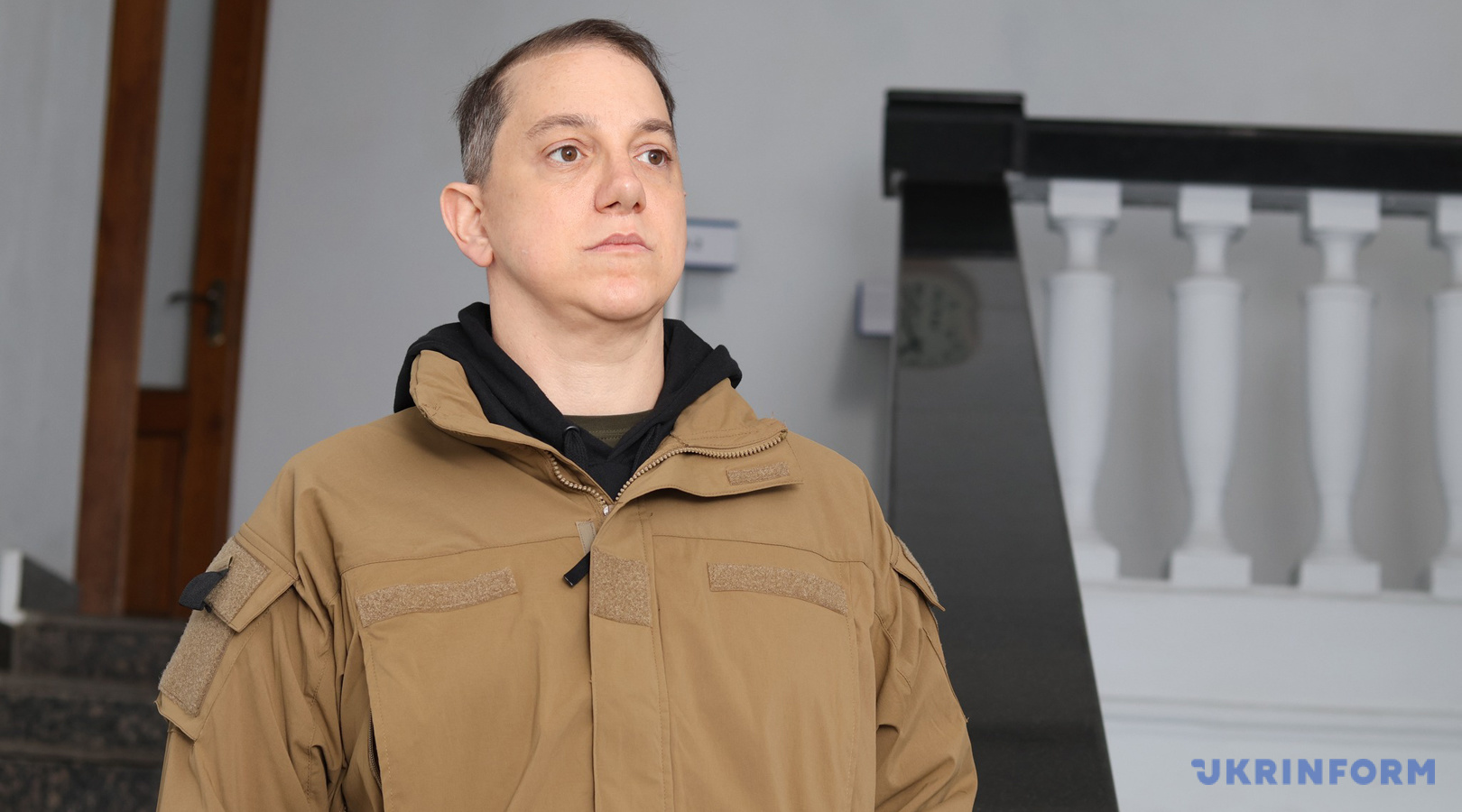
WHEN I SAW VICTIMS OF RUSSIAN GENOCIDE BEING EXHUMED, I DECIDED TO JOIN UKRAINE’S ARMY
- You’ve come a long way to become a full sergeant with the Armed Forces of Ukraine. You initially came here in spring 2022 to cover the war as a journalist. Could you tell us what inspired you to join the army ranks and how did the process go overall?
- It’s a wild story and I haven't spoken about in some time because it seems lifetimes ago. I got here a week after the full-scale invasion and, when most people were headed to Kyiv, Odesa, or other parts of the hottest areas, I had made a promise to this incredibly patriotic Ukrainian doctor, a surgeon and professor in Ivano-Frankivsk, that she would be my first interviewee once I was credentialed. After four days of waiting, I received my credentials and when everyone else was headed into battle, I headed to Ivano-Frankivsk to keep my promise to Dr. Helena.
When I arrived there, I spent my first night in a bomb shelter because the city was under attack at that point so that was a unique experience. But the next day is when it really got pretty crazy. I was getting my credentials laminated and two guys who were in the print shop said, “Are you press?” I said, yeah. And they said, “You have to come to Kharkiv with us”. I asked them why, and they said it’s because Kharkiv’s under massive attack, the Russians are coming in and out of the city and most journalists are leaving and we're going there in an hour. I said, “Who are you guys?”, to which they said they were with the security forces. So I turned to this doctor who's the only person I knew in the country at that time – I'd known her for a few days. She talked to them and confirmed they were with Ukrainian security services.
I asked her what to do and she said “You're a journalist, you have to go out there to the front,”
And I cried the whole way. They even asked me at one point if I wanted them to drop me off to go back because I was scared. I didn't know what war was. Yet after I arrived, I didn't leave Kharkiv for more than half a year. Because of this I only understood the war from the front lines. I became one of the outreach directors for the territorial district of Zolochiv, under Mayor Kovalenko, which is in the Russian border zone. Living and working there, I witnessed terrorism every day. Finally, after multiple days in Izium of watching the exhuming of the victims of the Russian genocide, I spoke to the man who's now my commander, Major Ilko Bozhko. And I said, “You have mentioned to me for the last couple of months if I want to join the Army. Let’s do it!” And shortly after they brought me to Kyiv where I went through the typical Ukrainian track – I went to the recruitment center, I had to do all the paperwork, take all the tests, and go for my medical evaluation, and now, 16 months later, I've been in service with the ZSU and now I'm a sergeant for the Army.
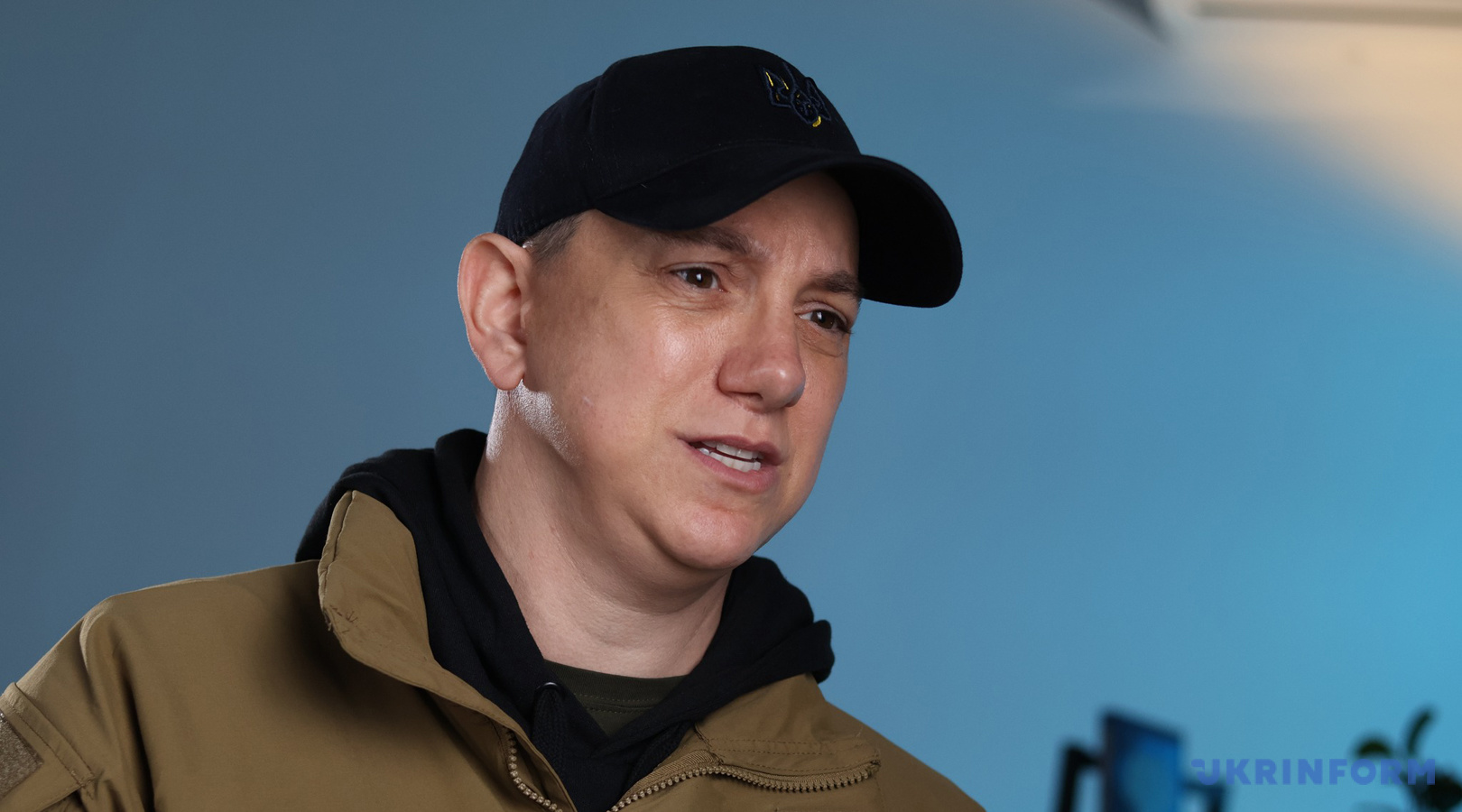
IN THE INFOWAR, I EXPLOITED THE FACT THAT RUSSIA HATES LGBT COMMUNITY
- A huge – and very exciting – part of your military career here is about your input into information warfare. What’s the background behind the idea to engage in this effort? Was it just an order you received from superiors or perhaps it was partly your idea?
- One of the most controversial aspects of my time here and something that turned out to be amazing, but was very difficult throughout the entire process. Simply put, Major Bozhko had made contact with Colonel Oleskiy Dmytrashkivskyi, who was head of the Territorial Defense Forces media for the nation and they made the decision that after five months of me fighting at the front, to pull me off the front and bring me to Kyiv to get into comms. And that ended up becoming what the SSU Academy told NATO was the most significant and successful information operation of the war.
Shortly after the move, Colonel Dmytrashkivsky me to the Ministry of Defense and we sat down with the Deputy Defense Minister, Hanna Maliar, who is possibly one of the greatest minds when it comes to information warfare. And Colonel Dmytrashkivskyi understands media. So they gave me a broad outline and told me to basically create something where I would get the Russians’ attention. And we were going to try to use this TDF Media project to draw fire away from President Zelensky, General Budanov, and all the people that would be attacked by Simonian and those other propaganda folks in Russia. And they just told me to come up with something. So, knowing how much Russia hates the LGBT community, knowing how much Russia hates being attacked (because Russia is a bully and we need to punch them back rather than spend time explaining), my team at the TDF Media and I came up with something called “Russia Hates the Truth”. And I said, let's mock them. I'm transgender and I'm going to come at them in a way that they're not expecting. So we created this character that was based off of what they would imagine me to be. So we took their playbook and we engaged in what I call, “escalation theory”: they're coming at us on a scale of point 1, and we're coming at them at point 10…
So no matter how ridiculous whatever it was that would come out of my mouth, it was simply to grab their attention and use up their resources. It ended up becoming so successful that we leaked to Russian media this ridiculous idea that I was going to be named spokesperson in the TDF for the foreign media. But in reality, there's no such position. However, there was so much outrage in Russia that we decided to incorporate it into the character. So then I became “TDF spokesperson”. But again, there was no signature, no order to this end. It was just me talking to the camera, using this title all as part of this information operation. And then all hell broke loose, and ratings were amazing, and every night we were on television in Russia, and I would come up with more and more absurd statements. Until finally, there were political questions as to what the heck was going on. And there was this idea that, okay let's cool it off. So we're going to put out this idea that Sarah Ashton was suspended from the position of spokesperson. But I was never the spokesperson… And that's why if you go back and look at the announcement, it clearly say suspended as spokesperson. And when media were calling, I was trying to tell them – because we had all the documents: “No suspension”. And they still wanted to run with the story, including local media. They didn't want to go deeper, even though we told them, So, I was told to be quiet for a week, and then the following week, the SSU presents to NATO that it was the most successful information operation of the war…
- When was the point where you realized: “Yes, this is actually working”?
- Every day either Simonian or Skabeeva… You know Skabeeva – a wicked, wicked woman. She's truly a heartless, soulless creature. So, ultimately, every day when they were focusing on me over and over and over again, and we were watching tens of millions of views just rack up, we knew it was successful. The moment that a letter was written by a partner nation inquiring as to whether I was some sort of intelligence operative, we knew we sort of hit this crescendo. The best part was we were planning to come back with Season 2. Colonel Dmytrashkivskyi – a brilliant director – sat me down and suggested that in Season 2, I will be hosting the Russia Hates Truth as a guy and just keep on hitting that. But before that happened, I was moved without much notice to the General Staff of the Main Directorate of Moral and Psychological Support for the entire Ukrainian Defense Forces. And I've been with General Staff since.
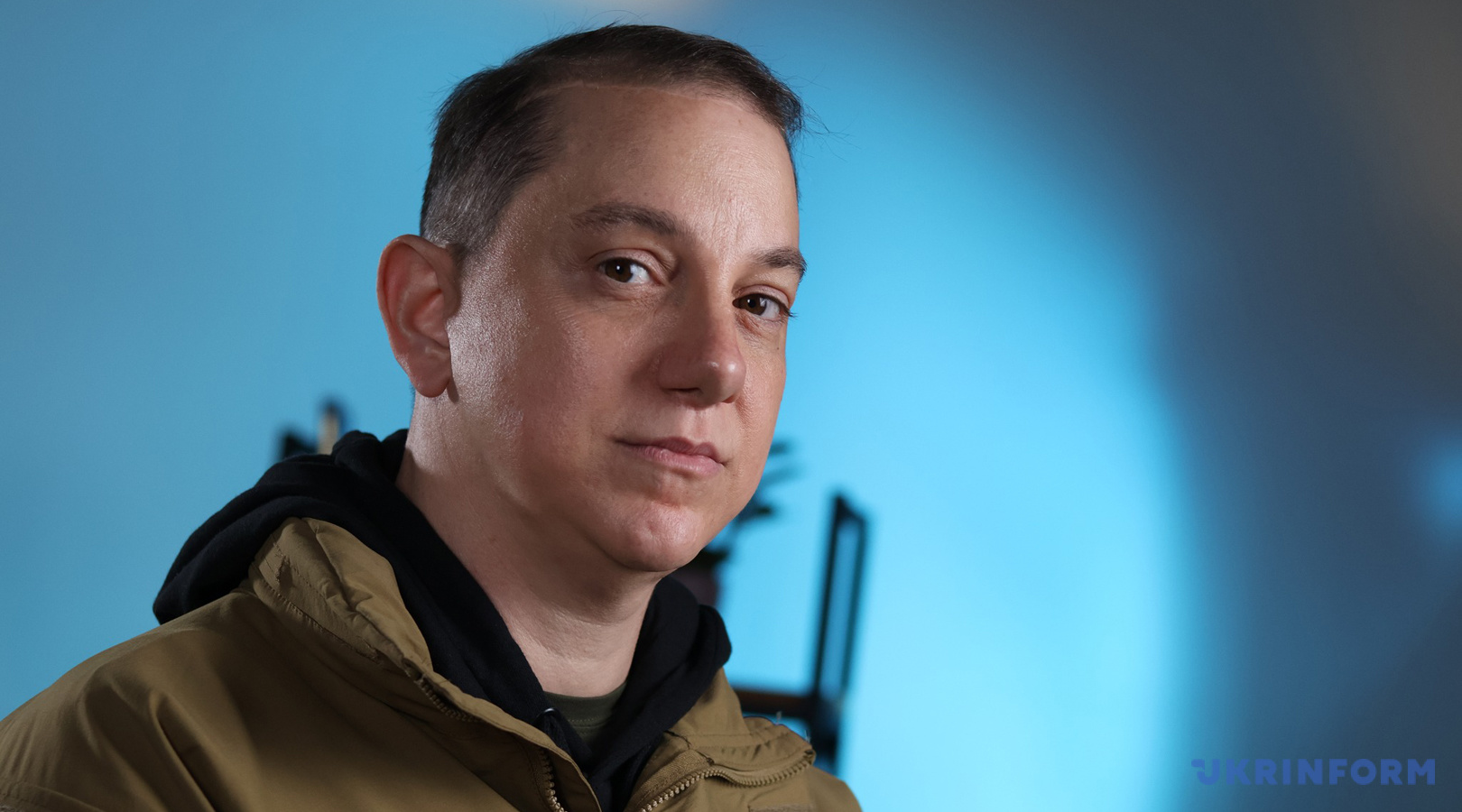
THE INFO-OP WAS THOROUGHLY PLANNED
- Coming back to the info ops, finding the right triggers for the adversary to react to, predicting such reactions, and crafting multiple scenarios for manipulation is actually Russia has been quite keen on in its hybrid warfare. So basically your idea was to hit Russia with its own weapon – to create rather than react to something, meaning to go on an offensive in the media space. What’s your own assessment of your contribution and how was it perceived by our StratCom pundits?
- I think there were people who were confused by what we were doing because we kept it so close. My job is to respond to command. I was given my orders – whether it is to pick up a rifle and defend the front, as I've done, if my command is to help blow up the Kerch Bridge (and we're going to see it crumble soon enough), or if my job is to create this character. So I couldn't be concerned about what was happening within various command verticals. I trusted my team and friends with the security services to understand what was going on. I think because we're good at keeping our work as it should have been, fully hidden under the guise of operational security, people were confused. This was an entire process of making sure whatever I did was so outrageous and keep following it up in everything I did. So online, I would make crazy statements and I’d do some videos – anything to continuously keep up the character to the point that we've created a position that didn't exist. I spoke to students at SSU Academy about this and broke down how we did it. One of my colleagues in production at TDF Media, Sergeant Ivan, and I would go over every piece of how the show would be, including that one time when I knocked over some Russian cardboard cutouts and we were like: “how can we make sure we do it right?” We were not saying that the Russian people aren't human. We're literally saying these cardboard cutouts aren't human – and they're not – so we staged everything. Even though it looked like I was just talking, we understood every step of what we did, including, when we would do the releases and things of that sort.
So, even when the criticism was coming, I still continued to push it because that was my job. My job was to take the hate both from the Russians and from others, I was not to break character, and I wouldn't break character, until I was told the mission's over. And the folks at SSU Academy when I went ahead and did our presentation in November of 2023 to them, understood it. Because if the analytics are proper enough, you can see and hear past the noise of what's just coming up on hot takes on social media. The folks on social media are important because they can keep the narrative going, but you have to go much deeper.
- Could you share some of the behind the scenes moments from your project, perhaps some of the things that didn’t make the final cut but you now wish they did?
- Absolutely. Dmitry Medvedev blocked me. They all blocked me. Because these people are spineless – Medvedev, Dugin, and others. They think it's going to change things. I called Medvedev a cuck. And the term ‘cuck’ is this sort of sexualized term for the western audience that really is derogatory towards men. And so I called Medvedev a ‘cuck’ and then decided to cut that. And ultimately, the Russians can't handle when these statements are made, because in the end, they don't know how to respond. You hit them, they fall. We've seen this over and over again, and that's why our military and civilian leadership understand how to bring us to victory. That's why President Zelensky, CinC Syrskyi, Chief of Staff Berhalevych are the greatest minds of warfare, diplomacy, and information operations.
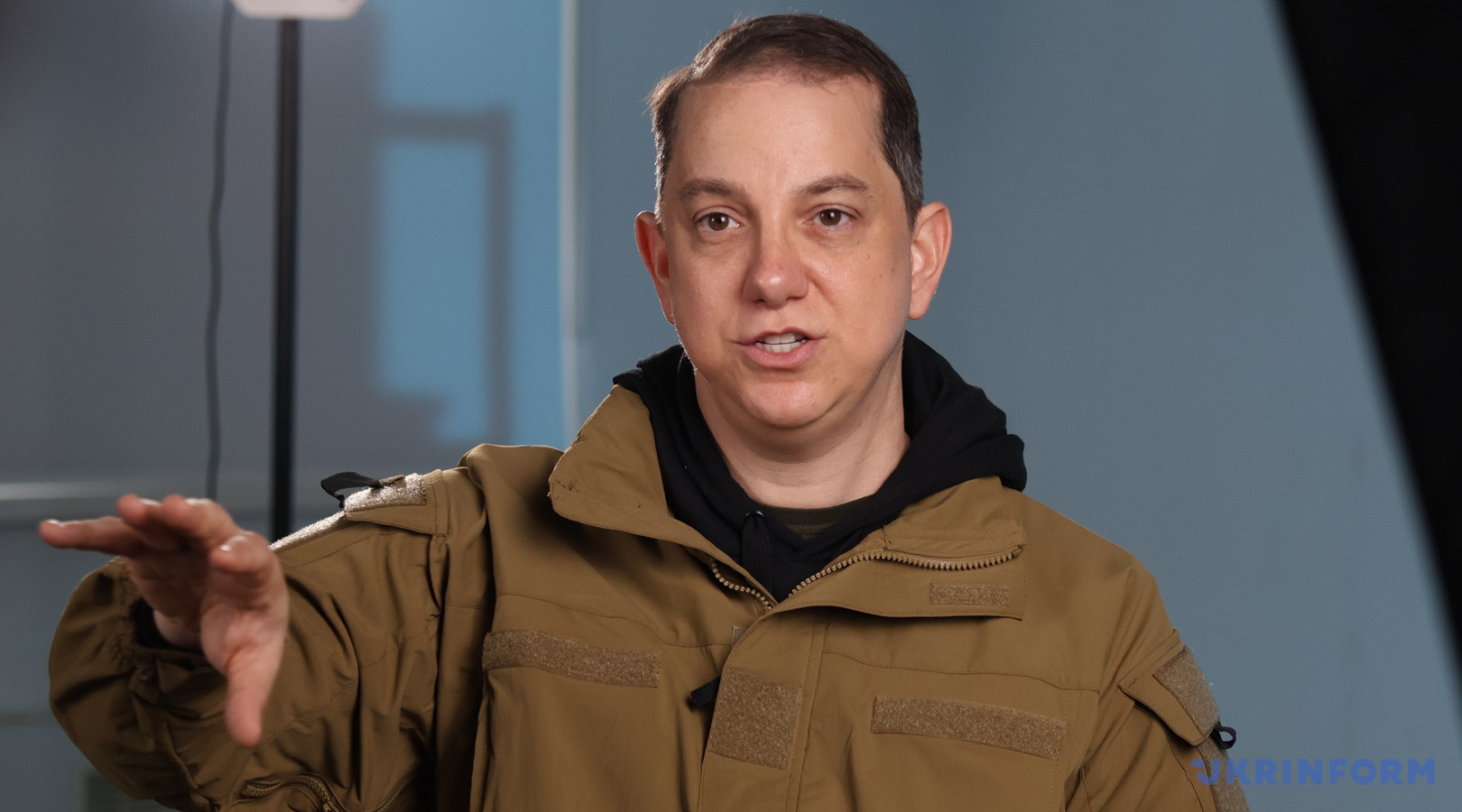
- Speaking of information warfare more broadly, do you believe debunking Russian hoax stories is feasible at all? If so, is there any reason to keep trying to sow doubts precisely among the Russians about what they see on Russian government-run television?
- We should ignore it all. The Russian budget is so big that even if we attempt to dispel the rumors or the so-called fakes that they put out, we're not going to be able to break through their info ops defense lines in response. That's why we always have to be on the offensive. As long as we're creating the narrative, as long as we are owning the narrative, as long as we are creating the truth, Russia doesn't know how to handle it and Russia will be too busy trying to defend themselves to be able to attack us with their lies.
WAGNER IS RECRUITING MERCENARIES IN LATINA AMERICA
- Speaking globally, Russian propaganda and disinformation have a really vast reach and we see that the coalition supporting Ukraine is still struggling to achieve the critical support from the Global South, including because Russian narratives have been rooted in some of those nations? I know you researched Russian influence on Latin America – so what are your impressions of its scale and what do you think Ukraine and partners should do to win the hearts of the people and governments in the Global South?
Nations in the Americas, throughout Africa, throughout the Near East and Far East are so imperative to a victory for Ukraine because these people understand what it is to be victims of colonialism, to be victims of genocide, which goes back generationally for them. They truly are our partners in understanding what liberty and liberation is because they've been trying to rip off the shackles of enslavement for at least 100 plus years.
When I went down to Latin America, and I was able to take extended leave down there. I spent about three and a half weeks researching what was really happening, and it's far worse than we can imagine. We're lucky because here in Ukraine we have a group called The Bolivar Battalion made up of Venezuelan Freedom Fighters. They understand how bad communism is, they understand how terrible Maduro is, how terrible what's going on in Nicaragua and Cuba. And these are all areas that are within the Russian sphere of influence. In Mexico City, I went and visited the Russian Embassy. I did a live broadcast from outside there. Russia has RT on three different channels in Mexico since I returned. I also found out – and this came directly from the head of the mercenary committee at the United Nations high committee for human rights – that Wagner is recruiting in Mexico. Wagner is recruiting in Peru. They even named some of the organizations that they're recruiting from. We know they're recruiting in Venezuela, we know they are trading soldiers for money in Cuba and we also know that they're recruiting in Colombia. So it's truly the virus of Russkiy Mir. And my statement is this. President Zelensky is leading the world in a global fight for Freedom, Liberty and Liberation. It's all tied in together. So what we're seeing in Africa, what we're seeing in the Americas, and what we're seeing as I stated across the Mid and Far East, is all tied in together to the war that we're fighting in Kharkiv, to the war that we're fighting in Donbas. When we liberate Crimea – and we will liberate Crimea – and when we liberate Donetsk, Luhansk, Zaporizhzhia, all of Kherson region…When we stop the terrorism here in Ukraine, you're going to see the rest of the world become more free. No doubt about it.
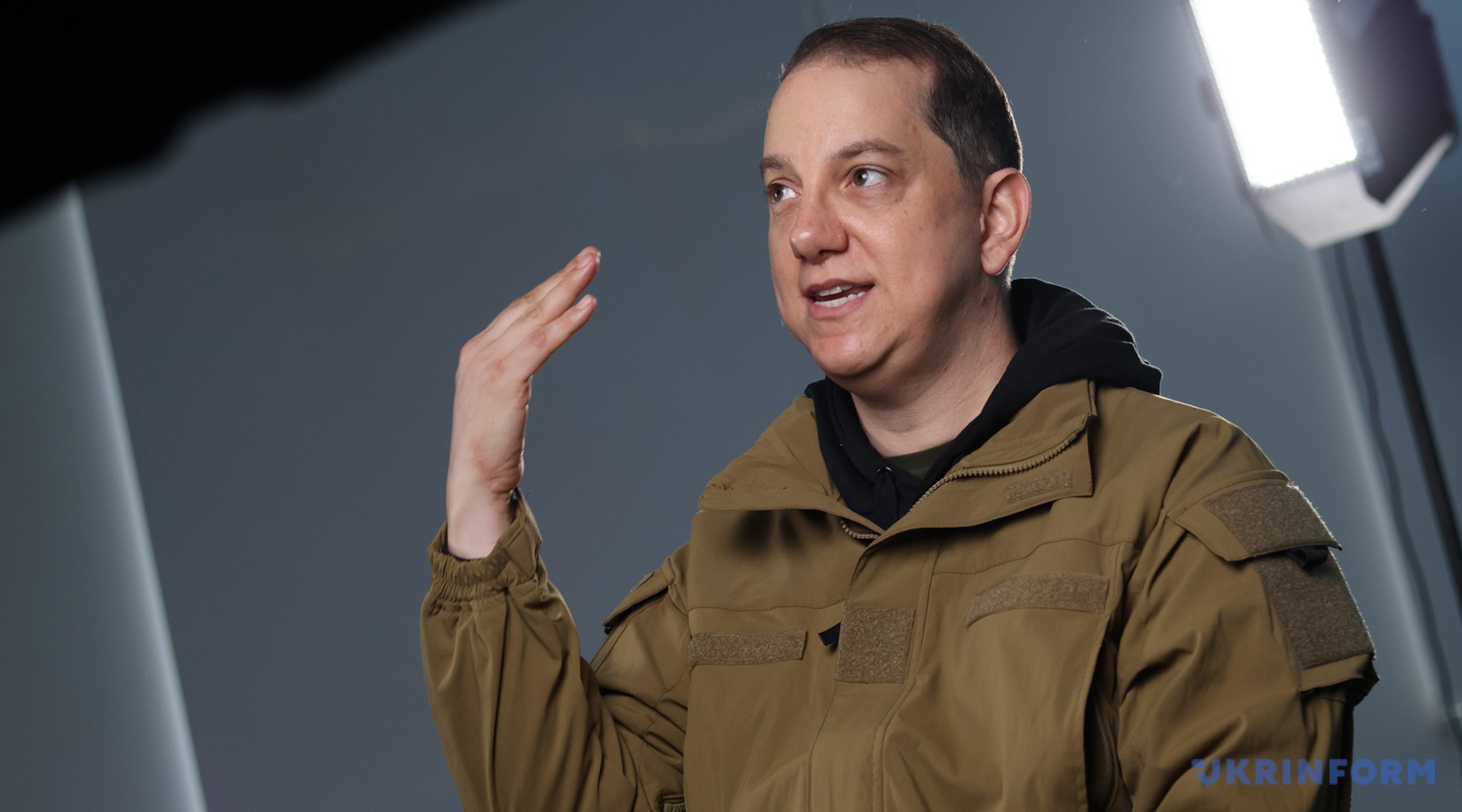
ON THE FRONT, YOU SEE VERY CLEARLY WHAT YOU’RE DOING FOR VICTORY
- Coming back to your military service as a combat medic with Ukraine’s Territorial Defense Forces. You were recently awarded the Golden Cross. What is the story behind this?
- I shouldn't have been in a position to win the Golden Cross. Commander Bozhko always tells me our Heroes are the men and women, who are Eternal Heroes, not the ones who return from battle. So it was a complete surprise to me, especially receiving the honor almost a year after our battle.
Here's what took place. I was with the Crimean Tatars unit when the Kharkiv Defense Forces needed a combat medic. They were going to the front. I volunteered. When I got to Sloviansk, we were fighting along with the 66th Brigade, a very professional military. We were told we're going into the woods in Luhansk Region, I can't reveal exactly where. And we were going to hold the defense line against these professional Russian troops. And we are these TDF fighters from Kharkiv Oblast, basically yesterday’s farmers. And our commander, Captain Oleksiy, is a nuclear physicist. It's wild: a nuclear physicist giving us leadership… leading from the very front. We had no weapons except for rifles, bare minimum supplies, and some RPGs. And for a month in the cold, in the snow and ice, we not only held the line against the advancing Russian forces, we actually took part in a counter assault. And finally it became more known that Kharkiv TDF really were these these men and women who were as much a part of the professional military as the 66th, 72nd, 92nd, or 93rd brigades. I was out there with them every day until I was injured. I didn't want to leave the front. But, as I mentioned, Major Bozhko and Colonel Dmytrashkivskyi made the decision to take me off the front. I cried for my first month in Kyiv, I literally cried. Because I didn't want to leave the guys I was fighting with and I didn't want to leave the front because on the front it's very clear what you're doing for victory, you understand your commands and you only hope for the sun to rise. If you see the sun rise, you have done your job. And in Kyiv, it's a much different type of warfare, but one that obviously I was able to adapt to.
- Wrapping this up, how does it feel to have the Kremlin officially designate you as terrorist?
- I was honored to receive the Golden Cross. However, my greatest honor, my greatest badge of victory against the Russianswas was being officially sanctioned and put on their terrorism list. And when it was reported, I was ecstatic – that confirmed our success that the SSU had presented to NATO, it confirmed the success and the vision of Deputy Defense Minister Maliar, Colonel Dmytrashkivskyi, and Major Bozhko as to what we could truly do in asymmetric warfare. We are preparing asymmetric warfare along the physical battlelines under Colonel General Syrskyi and in the strategic operations, strategic communications area as well.
And so my terrorism designation was truly the capstone to that project, “Russia Hates the Truth”. And ultimately, I hope they have reason to charge me with even worse things. Russia doesn't have a justice system. It’s a failed state, Russia is a terrorist cabal, Russia is a terrorist state. We know this, but whatever they call their justice system, bring it on. It's not going to save the Kerch Bridge. It's not going to save them from us taking back Crimea, Donetsk, Luhansk, and all the temporarily occupied territories. And if you're lucky, we'll give you part of Belgorod back.
- All the best in your future service and your endeavors on the information battlefield.
- Glory to Ukraine and thank you to Ukrinform
- Glory to Heroes!
Ievgen Matiushenko
Photo by Ievgen Kotenko
